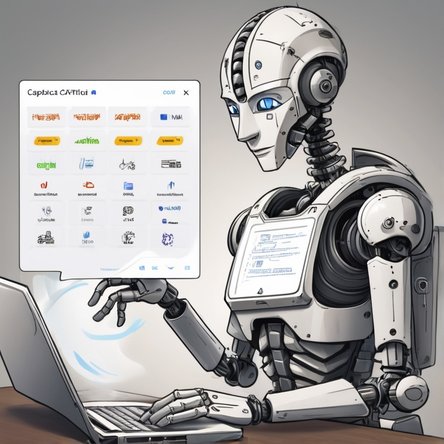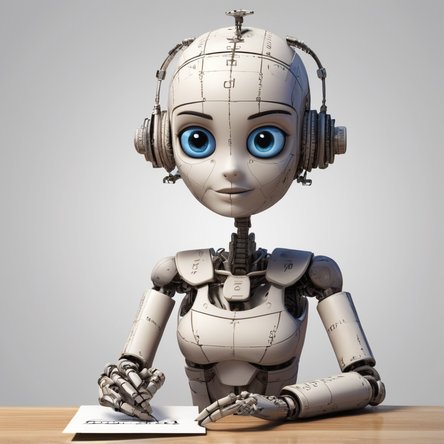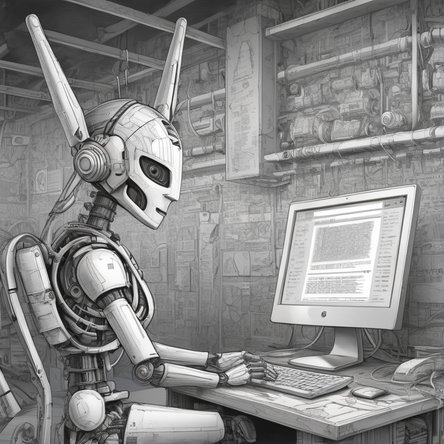Understanding CAPTCHA Codes: An In-Depth Exploration
In the digital age, where online security and user verification are paramount, CAPTCHA codes have emerged as a crucial component of safeguarding websites from automated threats. CAPTCHA, an acronym for Completely Automated Public Turing test to tell Computers and Humans Apart, serves as a barrier between legitimate users and malicious bots. This comprehensive guide delves into the intricacies of CAPTCHA codes, exploring their purpose, evolution, various types, and their impact on user experience and security.
The Genesis of CAPTCHA Codes
The inception of CAPTCHA codes traces back to the early 2000s when the need to differentiate between human users and automated programs became increasingly evident. As the internet expanded, so did the sophistication of automated systems designed to exploit online platforms. To counter these threats, researchers and developers sought a solution that would enable websites to confirm the authenticity of their users. CAPTCHA codes emerged as a response to this challenge, designed to be simple for humans to solve while being difficult for machines to interpret.
How CAPTCHA Codes Function
CAPTCHA codes operate on a fundamental principle: they present challenges that are easy for humans but difficult for computers. Typically, these challenges involve tasks such as recognizing distorted text, identifying objects in images, or solving simple mathematical problems. The underlying technology relies on the fact that human cognitive abilities are distinct from those of artificial intelligence. While computers excel at processing large amounts of data quickly, they struggle with tasks that require pattern recognition or contextual understanding.
Types of CAPTCHA Codes
Over the years, various types of CAPTCHA codes have been developed to address different security concerns and enhance user experience. Some of the most common types include:
The Evolution of CAPTCHA Codes
CAPTCHA codes have evolved significantly since their inception. Early versions relied heavily on distorted text, which, while effective at the time, faced challenges as machine learning and OCR technology improved. As a result, newer CAPTCHA systems have incorporated more sophisticated techniques to stay ahead of evolving threats.
The advent of image recognition and machine learning technologies has led to the development of more interactive CAPTCHA solutions. For example, reCAPTCHA not only protects websites but also contributes to digitizing books and improving machine learning algorithms. By analyzing user interactions and solving CAPTCHA challenges, users indirectly aid in tasks such as transcribing old texts and training AI systems.
The Impact on User Experience
While CAPTCHA codes play a crucial role in securing websites, they can also impact user experience. The primary challenge lies in striking a balance between security and convenience. For legitimate users, solving CAPTCHA codes can sometimes be an inconvenience, especially when the challenges are complex or not easily understood.
To mitigate these issues, developers continually refine CAPTCHA systems to enhance usability. Modern CAPTCHA codes aim to minimize disruptions while maintaining robust security measures. For instance, reCAPTCHA’s use of behavioral analysis and minimal user interaction has significantly improved the user experience by reducing the frequency of challenges.
Security Implications and Challenges
Despite their effectiveness, CAPTCHA codes are not without limitations and challenges. As automated systems become more sophisticated, so do the methods used to bypass CAPTCHA challenges. For example, advanced machine learning algorithms can sometimes decipher distorted text or solve image-based CAPTCHAs with increasing accuracy.
To address these concerns, developers continuously update and improve CAPTCHA systems. They incorporate new techniques and technologies to stay ahead of emerging threats. Additionally, CAPTCHA codes are often used in conjunction with other security measures, such as multi-factor authentication and IP monitoring, to provide a comprehensive defense against automated attacks.
The Future of CAPTCHA Codes
Looking ahead, the future of CAPTCHA codes will likely involve further advancements in technology and user experience. As artificial intelligence and machine learning continue to evolve, CAPTCHA systems will need to adapt to new challenges and threats. This may involve integrating more advanced biometric verification methods or developing innovative approaches to distinguish between humans and machines.
In summary, CAPTCHA codes play a pivotal role in maintaining the security and integrity of online platforms. By presenting challenges that are easy for humans to solve but difficult for machines, CAPTCHA codes help protect websites from automated threats. As technology continues to advance, CAPTCHA systems will evolve to address new challenges while striving to enhance user experience and security.
In the digital age, where online security and user verification are paramount, CAPTCHA codes have emerged as a crucial component of safeguarding websites from automated threats. CAPTCHA, an acronym for Completely Automated Public Turing test to tell Computers and Humans Apart, serves as a barrier between legitimate users and malicious bots. This comprehensive guide delves into the intricacies of CAPTCHA codes, exploring their purpose, evolution, various types, and their impact on user experience and security.
The Genesis of CAPTCHA Codes
The inception of CAPTCHA codes traces back to the early 2000s when the need to differentiate between human users and automated programs became increasingly evident. As the internet expanded, so did the sophistication of automated systems designed to exploit online platforms. To counter these threats, researchers and developers sought a solution that would enable websites to confirm the authenticity of their users. CAPTCHA codes emerged as a response to this challenge, designed to be simple for humans to solve while being difficult for machines to interpret.
How CAPTCHA Codes Function
CAPTCHA codes operate on a fundamental principle: they present challenges that are easy for humans but difficult for computers. Typically, these challenges involve tasks such as recognizing distorted text, identifying objects in images, or solving simple mathematical problems. The underlying technology relies on the fact that human cognitive abilities are distinct from those of artificial intelligence. While computers excel at processing large amounts of data quickly, they struggle with tasks that require pattern recognition or contextual understanding.
Types of CAPTCHA Codes
Over the years, various types of CAPTCHA codes have been developed to address different security concerns and enhance user experience. Some of the most common types include:
- Text-Based CAPTCHA: This is the most traditional form of CAPTCHA, where users are required to decipher distorted or obscured text. The text is often rendered in a way that is challenging for optical character recognition (OCR) software to interpret but still readable for humans.
- Image-Based CAPTCHA: With advancements in technology, image-based CAPTCHAs have gained popularity. Users are presented with images and must identify specific objects or complete tasks related to the images, such as selecting all pictures containing a certain object.
- Audio CAPTCHA: Designed to assist visually impaired users, audio CAPTCHA codes present a series of spoken characters or words that users must transcribe. This ensures that accessibility needs are met while maintaining security.
- Mathematical CAPTCHA: These CAPTCHAs require users to solve simple mathematical problems, such as addition or subtraction, to verify their humanity. This method is straightforward and effective, leveraging basic arithmetic skills that are easy for humans but challenging for automated systems.
- ReCAPTCHA: Developed by Google, reCAPTCHA is an advanced form of CAPTCHA that leverages user interactions with web elements to determine authenticity. Users may be asked to click checkboxes or perform actions that indicate they are human. ReCAPTCHA also analyzes user behavior patterns to enhance security further.
The Evolution of CAPTCHA Codes
CAPTCHA codes have evolved significantly since their inception. Early versions relied heavily on distorted text, which, while effective at the time, faced challenges as machine learning and OCR technology improved. As a result, newer CAPTCHA systems have incorporated more sophisticated techniques to stay ahead of evolving threats.
The advent of image recognition and machine learning technologies has led to the development of more interactive CAPTCHA solutions. For example, reCAPTCHA not only protects websites but also contributes to digitizing books and improving machine learning algorithms. By analyzing user interactions and solving CAPTCHA challenges, users indirectly aid in tasks such as transcribing old texts and training AI systems.
The Impact on User Experience
While CAPTCHA codes play a crucial role in securing websites, they can also impact user experience. The primary challenge lies in striking a balance between security and convenience. For legitimate users, solving CAPTCHA codes can sometimes be an inconvenience, especially when the challenges are complex or not easily understood.
To mitigate these issues, developers continually refine CAPTCHA systems to enhance usability. Modern CAPTCHA codes aim to minimize disruptions while maintaining robust security measures. For instance, reCAPTCHA’s use of behavioral analysis and minimal user interaction has significantly improved the user experience by reducing the frequency of challenges.
Security Implications and Challenges
Despite their effectiveness, CAPTCHA codes are not without limitations and challenges. As automated systems become more sophisticated, so do the methods used to bypass CAPTCHA challenges. For example, advanced machine learning algorithms can sometimes decipher distorted text or solve image-based CAPTCHAs with increasing accuracy.
To address these concerns, developers continuously update and improve CAPTCHA systems. They incorporate new techniques and technologies to stay ahead of emerging threats. Additionally, CAPTCHA codes are often used in conjunction with other security measures, such as multi-factor authentication and IP monitoring, to provide a comprehensive defense against automated attacks.
The Future of CAPTCHA Codes
Looking ahead, the future of CAPTCHA codes will likely involve further advancements in technology and user experience. As artificial intelligence and machine learning continue to evolve, CAPTCHA systems will need to adapt to new challenges and threats. This may involve integrating more advanced biometric verification methods or developing innovative approaches to distinguish between humans and machines.
In summary, CAPTCHA codes play a pivotal role in maintaining the security and integrity of online platforms. By presenting challenges that are easy for humans to solve but difficult for machines, CAPTCHA codes help protect websites from automated threats. As technology continues to advance, CAPTCHA systems will evolve to address new challenges while striving to enhance user experience and security.



